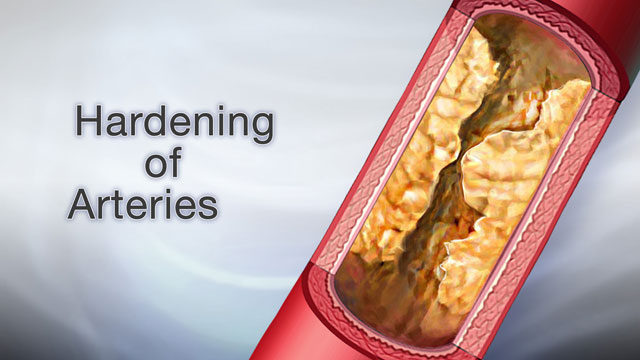Food Flavourings Used Commonly In Thailand can lead to Hardened Arteries.
Source: Thailand Medical News May 12, 2019 5 years, 11 months, 2 weeks, 17 hours, 4 minutes ago
One of the largest of its kind, the study performed an untargeted metabolomics profile of over 1,200 participants to identify metabolites linked to the hardening of arteries.

Hardening arteries, or arterial stiffness, is an independent risk factor for heart disease and death, and the mechanisms that contribute to arterial stiffening are not well understood.
That's where metabolomics can help pull back the curtain on how and when arterial stiffness begins to occur.
Metabolomics is the study of metabolites, which are created each time there is a transfer of energy in the body. Metabolites play a key role in maintaining the body's normal function, and changes in metabolite levels can reflect how environmental factors, like smoking, diet or pollutants, influence health.
"Metabolomics can accurately measure the amount of exposures entering the body," said study author Changwei Li in an exclusive interview with Thailand Medical News.
"In this study, we identified many metabolites related to coffee drinking, alcohol drinking, Southern foods, dietary supplements, and even pesticides," said Li, an assistant professor of epidemiology and biostatistics at UGA's College of Public Health.
Using the most up-to-date panel of metabolites, Li and his colleagues ran an analysis on participant blood samples, looking for environmental exposures that had an impact on measures of arterial stiffness.
The study found 27 new metabolites associated with arterial stiffness.
"We were able to identify some environmental and lifestyle related-metabolites, build metabolite networks to shown how the body reacts to the environmental exposures, and more importantly, tested the effect of those metabolites on arterial stiffness," said Li.
The majority of these were associated with other known risk factors of arterial stiffness like high blood pressure, high cholesterol or diabetes.
But some of these metabolites are food additives and cooking ingredients found in many Asian Kitchens.
For example, the team identified two peptides -- gamma-glutamylvaline and gamma-glutamylisoleucine -- that are commonly found in food flavorings such as chicken or pork broth powder or cubes that are very often sold and used extensively Thailand and other Asian countries.
.jpg)
"Our study raised possibility that those additives may cause arterial stiffness. Given the wide usage of those additives, future studies are warranted to investigate their role in arterial stiffness."
To be clear, said Li, the current study is a snapshot of metabolites. The relationship between some of the metabolites and arterial stiffness over time is unclear, and he has plans to run this study again using longitudinal data.
Reference: Changwei Li, Jiang He, Shengxu Li, Wei Chen, Lydia Bazzano, Xiao Sun, Luqi Shen, Lirong Liang, Ye Shen, Xiaoying Gu, Tanika N Kelly. Novel Metabolites
Are Associated With Augmentation Index and Pulse Wave Velocity: Findings From the Bogalusa Heart Study. American Journal of Hypertension, 2019; DOI: 10.1093/ajh/hpz046

.jpg)